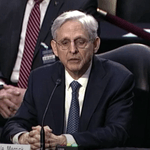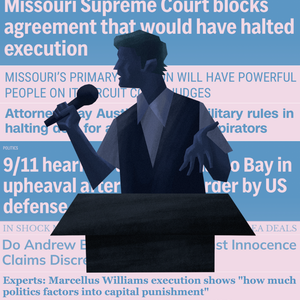
Expressing concerns about wrongful convictions, racially disparate impact, and arbitrariness, Attorney General nominee Merrick Garland (pictured) told the Senate Judiciary Committee during his confirmation hearing on February 22, 2021 that the death penalty has given him “great pause.” Garland said that he “expect[s] that the President will be giving direction” on the federal death-penalty policy, and that it was “not at all unlikely” that the Department of Justice would impose a moratorium on the federal death penalty.
Prior to his appointment as a judge of the U.S. Court of Appeals for the District of Columbia Circuit, Garland headed the Department of Justice (DOJ) investigation into the Oklahoma City bombing that led to the federal capital prosecution and execution of Timothy McVeigh. President Barack Obama nominated Garland to the U.S. Supreme Court to fill the vacancy created by the death of Antonin Scalia, but his appointment was blocked when Senate Republicans refused to hold any confirmation hearings.
Garland told the committee that he “supported the death penalty at that time for McVeigh, in that individual case” and that “I don’t have any regret” about his role in McVeigh’s case. However, he said, he had “developed concerns about the death penalty in the 20-some years since then.” Among the sources of his concern, he cited “the large number of exonerations that have occurred,” “the increasing almost randomness or arbitrariness of its application,” and its “enormously disparate impact on Black Americans and members of communities of color.”
Challenged by Sen. Tom Cotton (R – Arkansas) on whether he would seek the death penalty in a case such as the Oklahoma City bombing or Charleston church shooting, Garland responded: “It depends on what the development of the policy is. If the President asks or if we develop a policy of a moratorium, then it would apply across the board. There’s no point in having a policy if you make individual discretionary decisions. So, if that’s the policy, then that would be the policy.”
In a February 19 letter, the Leadership Conference on Civil and Human Rights, joined by 58 civil rights, labor, and public advocacy organizations, urged the U.S. Senate to confirm Garland to as Attorney General. “We need an Attorney General who will reinstate the Justice Department’s historic commitment to integrity, independence, and vigorous civil rights enforcement,” the groups wrote. “Judge Garland would be such an Attorney General and is a fitting choice to lead the Justice Department at this moment.”
Christina Carrega, Garland says death penalty cases gave him “pause” and he expects Biden will halt federal prosecutions, CNN, February 22, 2021; Kevin Johnson, Merrick Garland says he has ‘great’ concern about federal use of the death penalty, which surged under Trump, USA Today, February 22, 2021; John Haltiwanger, Merrick Garland says he’s concerned about ‘randomness’ of death penalty and its ‘disparate’ impact on Black Americans, Business Insider, February 22, 2021; Adam Klasfeld, Top Takeaways from Attorney General Nominee Merrick Garland’s Confirmation Hearings, Law and Crime, February 22, 2021; Two Decades After McVeigh’s Execution, Merrick Garland Expresses Reservations on the Death Penalty, YouTube, February 22, 2021.
Read the Letter from the Leadership Conference on Civil and Human Rights supporting Judge Garland’s confirmation as Attorney General.
Photo: screenshot from Senate confirmation hearings, February 22, 2021.
Federal Death Penalty
Dec 09, 2024

Religious Groups, Former Corrections Officials, Pro-life Voices, and Many Others Urge President Biden to Commute Federal Death Sentences
Arbitrariness
Nov 05, 2024

DPI Report Provides Valuable Context for 2024 Elections
Arbitrariness
Oct 04, 2024
